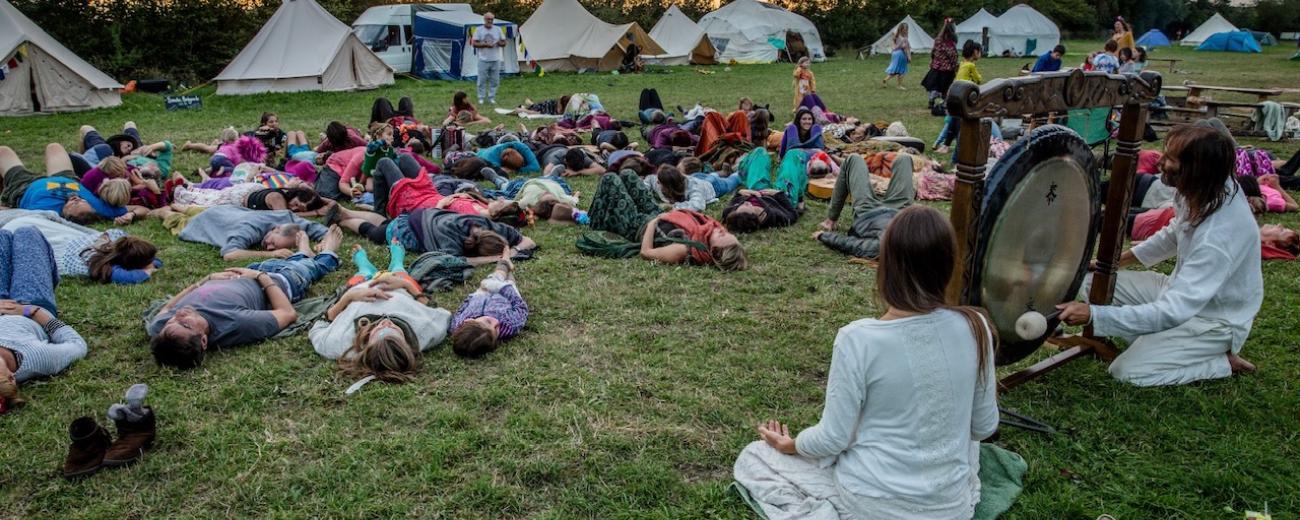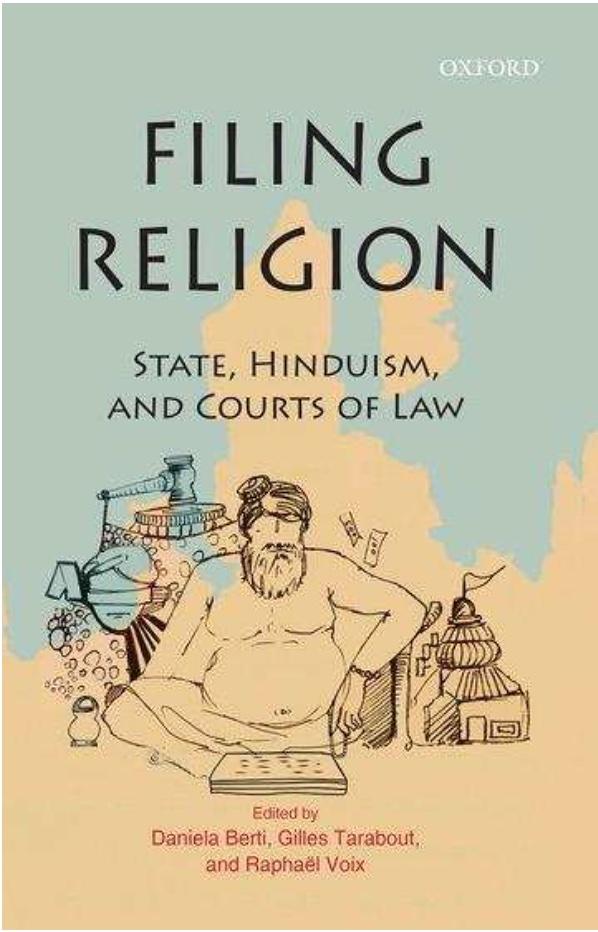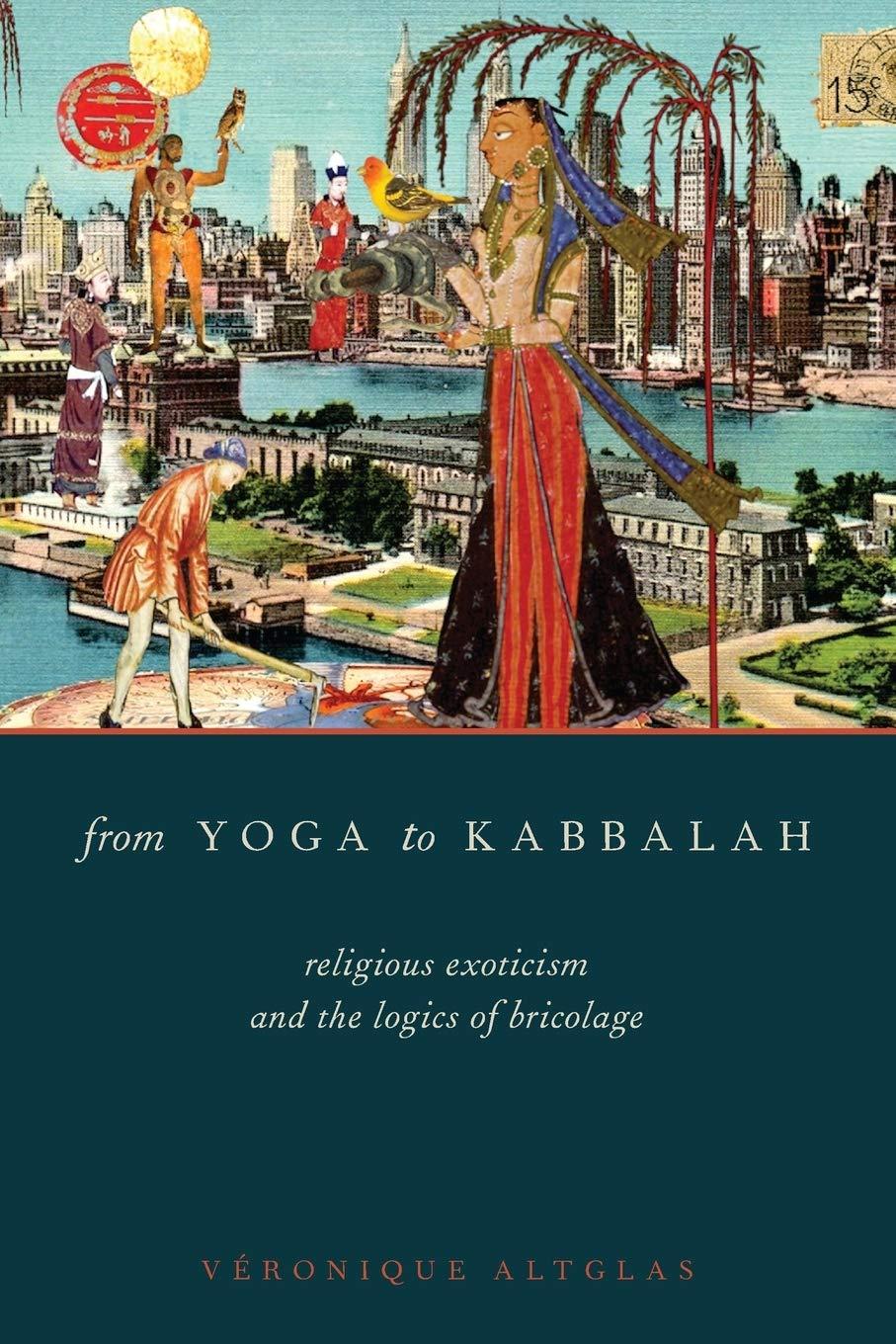Sociology: Voices from the field


Raphaël Voix The Legal Making of a ‘Hindu Sect’: Understanding the Tandava Case in Its Context
from Filing Religion: State, Hinduism and Courts of Law (Daniela Berto (Eds) et al. 2016, p. 149-196),
An anthropologist by training, in this chapter Voix presents a study of the way Hinduism is being transformed in secular India through the country’s judicial system. Through a detailed analysis of ethnographic data including, interviews, textual material and legal proceedings Voix charts the changing status and identity of the controversial tantric group, Ananda Marga. Changes that have occurred over the last 30 years have been closely aligned to the progress of the ‘Tandava case’ – legal proceedings related to the groups right to perform a dance ritual involving the use of skulls and knives in public.
‘The Supreme Court’s decision of 1983 to grant Ananda Marga the status of ‘Hindu Shaivite sect’ changed the way Ananda Marga disciples perceived themselves. The fact that their community was now said to be made up of ‘Hindu’ disciples seemed to make their membership acceptable in a wider religious sphere and thus to minimize their radicalism. Instead of framing all aspects of its disciples’ lives, as it had sought to do, Ananda Marga no doubt gradually made less restrictive claims on them. The Tandava case, therefore, seems to mark Ananda Marga’s shift to a ‘reformed Hinduism’ and thus to confirm the idea—already repeatedly attested to by history—that the sect could survive in Hindu India only if it relinquished its ambition to ‘revolutionize Hinduism’ (Herrenschmidt 1978: 260). What is striking here, however, is that it was the law and the judiciary, through the courts, that created the impetus behind the institutionalization of the sect. ‘ (2016: 192-3)
Read more about Raphael Voix’s work through The Center for Indian and South Asian Studies (CEIAS), the largest French social science research laboratory on the Indian subcontinent and one of the largest in Europe.
Andrea R. Jain: Who Is to Say Modern Yoga Practitioners Have It All Wrong? On Hindu Origins and Yogaphobia
Journal of the American Academy of Religion, June 2014, Vol. 82, No. 2, pp. 427–471
Andrea Jain is an American scholar of religion whose research considers the intersection of capitalism, religion, sex, and society in our contemporary world (andreajain.com). It is through this critical lens that she writes about modern yoga. In this article Jain deconstructs two critical stances towards the popularisation of modern yoga - the Christian ‘yogaphobic’ objection to the involvement in practices of non-Christian origin and the Hindu objection to what is seen as the global appropriation of a Hindu tradition – and argues that both share strikingly similar and polemical characteristics that can be attributed to the cultural context they share – that of consumer culture. Material from the article can also be found in Jain’s monograph Selling Yoga: From Counterculture to Pop Culture (Oxford 2014).
'Protesters against the popularization of yoga recognize that choice is a fact of contemporary culture and perceive it as a challenge to boundaries they want to maintain. Thus, it is the fact that choice becomes an imperative in every area of life in consumer culture that stirred both the popularization of modern yoga (the pluralization of the market made it possible for a wide variety of individuals to choose it) and the protests against it (protesters have reacted against choice because it threatens religious boundaries).' (2014: 457)
Jain’s recent books are published through Oxford University Press:
- Selling Yoga: From Counterculture to Pop Culture (Oxford 2014)
- Peace, Love, Yoga: The Politics of Global Spirituality (Oxford 2020)
You can also read and download a book review of Selling Yoga authored by Matylda Ciołkosz published in the Journal of Yoga Studies
Véronique Altglas From Yoga to Kabbalah; religious exoticism and the logics of bricolage, Oxford University Press (2014)
Véronique Altglas writes on the sociology of religion and presents yoga in this light as a significant contemporary belief and practice system. In this book she draws on eleven years of empirical research considering new religious movements rooted in Hinduism and Judaism: specifically Siddha Yoga, Sivananda and ISKCON centres in Britain and France and Kabbalah centres in Paris, London, Rio De Janeiro and Tel Aviv. This work serves to further a central critique of the sociological assertion that religion, or more often termed ‘spirituality’, in modernity is increasingly the object of free individual choice. She demonstrates that a closer and more critical analysis of religious exoticism in practice reveals it is much less eclectic than assumed and far from independent of social, cultural and historical context.
'By and large, the popularization of yoga and meditation, public curiosity about shamanism and Sufism, and the recent craze for Kabbalah all demonstrate the appeal of foreign religious traditions to a wide audience in advanced industrial societies. Strange and enticing, their perceived otherness seems to lend them authenticity and to nourish hopes for the discoveries of mysteries and hidden truths. However, such popularization has not led to mass conversions to Buddhism, Hinduism, Islam, or Judaism. These traditions…are often explored as fragmented “resources” that are combined in seemingly eclectic assortments.' (2014: 1)
To hear Véronique Altglas speak further on her research and the topic of religious bricolage listen to this 2014 episode of The Religious Studies Project podcast:
For an overview of Altglas’ sociological approach see the following introduction written in collaboration with her late partner Matthew Wood:
Past Centre of Yoga Studies talks
- Theo Wildcroft | Post-lineage Yoga from Guru to #metoo
- Farah Godrej | Freedom Inside?: Yoga and Meditation in the Carceral State
- Laura von Ostrowski | Book Launch: A Text in Motion
- Matylda Ciołkosz | Shaping models of social relations through yoga practice


